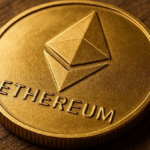
The Swiss National Bank rejected the growing call to adopt Bitcoin (BTC) as part of its foreign currency reserves, saying that cryptocurrencies do not meet liquidity and stability requirements.
Speaking at the central bank’s annual shareholders meeting in Bern, SNB Chairman Martin Schlegel warned that the institution needs assets to be bought and sold with certainty, and that digital currencies show too much price volatility to qualify.
Schlegel said:
“Cryptocurrencies are currently unable to meet the requirements for currency reserves.”
He cited “market liquidity” as a major concern, noting that cryptocurrencies usually exhibit “very very high” fluctuations in value, impairing their ability to maintain reserve stability.
Bitcoin recruitment campaign
This push will intensify cryptocurrency efforts to mandate Bitcoin Holding through constitutional amendments.
Supporters have launched a referendum campaign calling for SNB to add Bitcoin to its reserves along with gold.
Supporters say recent market instability, partly caused by new tariff measures from US President Donald Trump, has revealed the vulnerability of traditional reserve strategies and increased the appeal of diversified assets like Bitcoin.
Luzius Meisser, founder of the Bitcoin Initiative, which leads the referendum drive, addressed the SNB conference in person. He described Bitcoin as a “special asset” that serves as an important alternative in times of economic upheaval.
Meisser said:
“I have to admit that it may not be very valuable in scenarios that most of you consider normal. But in certain scenarios of a multipolar world order that wanes government trust in debt, Bitcoin is worth a lot.”
SNB is careful
Despite Switzerland’s position as a global hub for blockchain innovation, often referred to as the “Crypto Valley,” SNB’s leadership remains cautious.
Schlegel’s comments reveal that central banks will remain dependent on traditional reserve assets such as gold and key foreign currency, unless broader terms change.
Under Swiss law, referendum campaigns must collect 100,000 valid signatures within 18 months to enforce a referendum. If successful, this initiative could globally mark one of the first serious efforts to mandate central banks to retain Bitcoin through law.
For now, SNB remains unconvinced, claiming that the price volatility and liquidity challenges surrounding digital assets are more than unnecessarily important.














